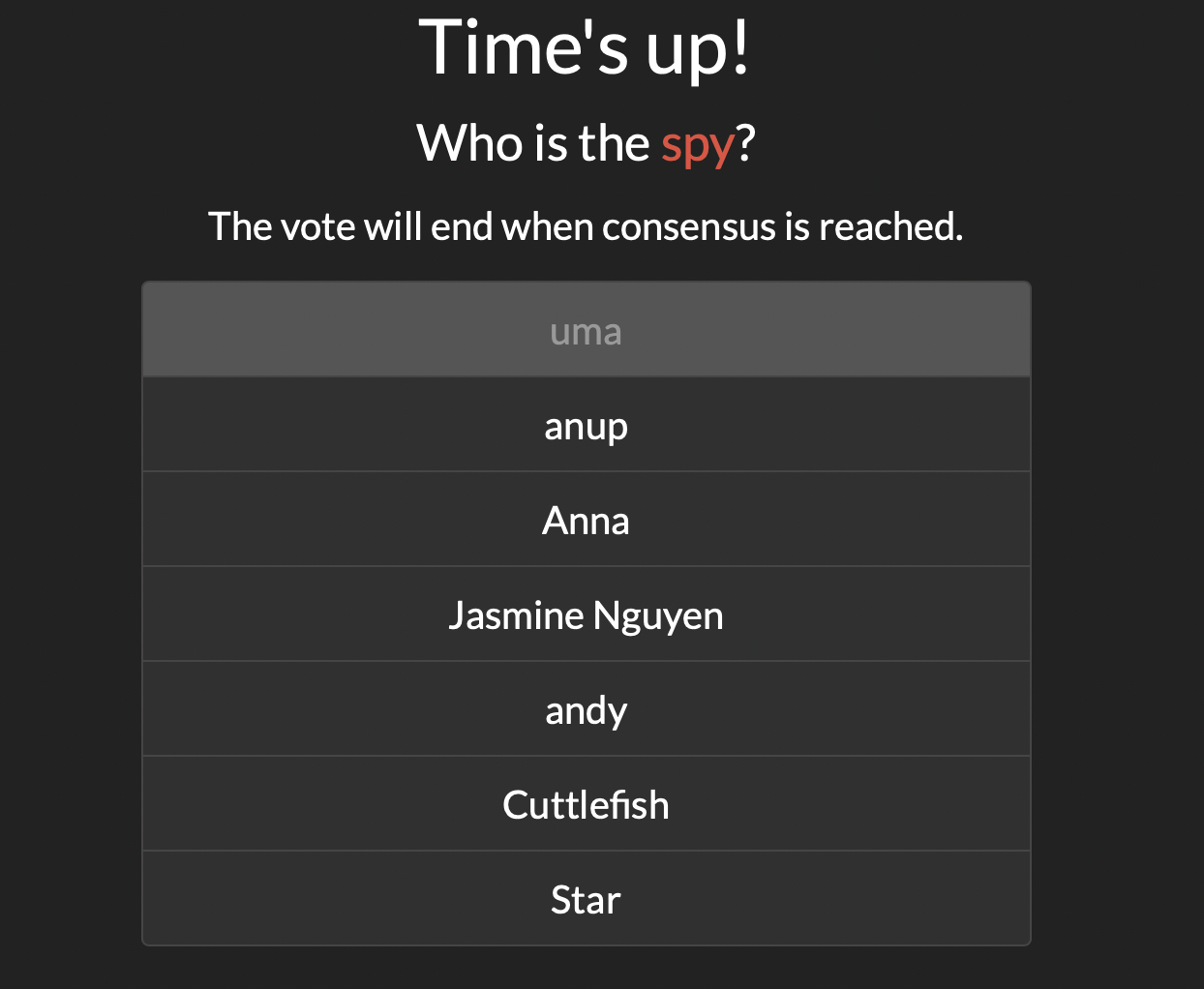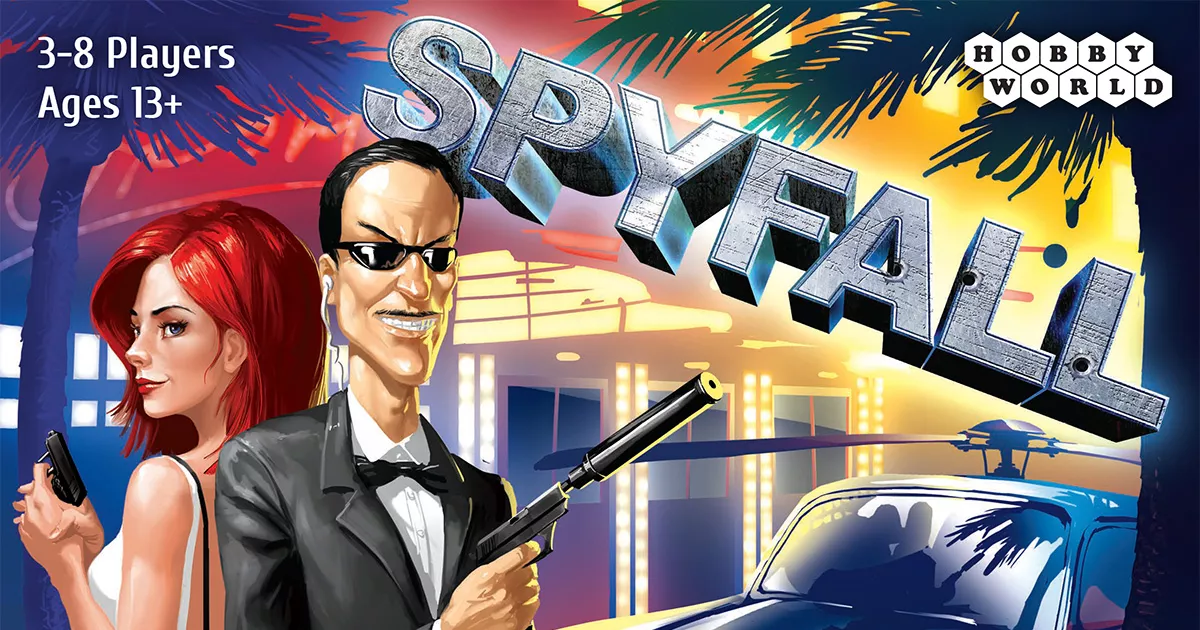Name of Game

I did my critical play on Spyfall, which I had never played before. I played it on the platform netgames.io, which was created and is maintained by Luke Tsekouras. The target audience is a pre-established group of friends of four or more. But, the age group does not matter much – the official game says that the ideal players are “teens and adults” of “ages 13+”. As long as the players are old enough to understand the mechanics of the game, they can produce the dynamics, that will generate the aesthetics.
Notable Formal Elements
- Players: The game can be played with 3-12 players. It operates under unilateral competition, like many social games (e.g. Fake Artist Goes to NYC). So, there is a sweet spot of number of players—too few make the game too hard for the spy, and too many makes it too easy.
- Objectives: The spy’s objective is to discern what that location is; the rest of the group’s objective is to discern who the spy is. This is standard.
- Procedures/Rules: Sussing out the spy and location is done through asking questions publicly to one another. All questions are yes/no questions about the location (e.g. “Do you go here every day?”). “House rules” probably exist in the types of questions that can be asked.
- Resources: Each round lasts 7 minutes in this version of the game. This can easily be changed.
- Conflict: The conflict is between the spy and all others. Non-spy players are trying to ask broad questions and answer broadly, to hide the location. Spy players are trying to mimic others’ questions and answers to both blend in and figure out what the location is before time runs out. This dual objective makes this game particularly hard for the spy!
- Boundaries: There are no physical boundaries.
- Outcomes: If the spy guesses a location wrong, they lose; if they guess right, they win. If the spy is figured out, they lose; if they are guessed incorrectly, they win. Both groups cannot win or lose together.
Most of these formal elements are standard for large social games. The most notable ones are the procedures and conflict: the combination of the spy having two desired objectives, and the possibility of being asked specific questions, makes Spyfall quite hard for the spy to win.
My Experience Playing the Game & Types of Fun
I really like playing social games, so I generally enjoyed Spyfall. But, I don’t think it was better than other social games I’ve played (Mafia, Secret Hitler, Bang!). This is because the spy is on a team by themselves, and they are so exposed throughout the game; there are no specified turns. I enjoyed the game because I, luckily, was never randomly assigned to be the spy. But friends who were the spy said the stress made the game ultimately not enjoyable. The game is fun for a few rounds (I played 3), because it has an aesthetic of Discovery: probabilistically, the spy will probably be different every round, so the game won’t be consistently stressful. But because at least one person is really stressed each round, the trend is people want to stop playing quickly.
Additionally, the game provides no bult-in red herrings or facets to make the game easier for the spy. So, out of the three rounds I played, two were “epic fails”: as soon as the spy answered their first question, we knew who they were. This was also because I didn’t know about half of my team super well: this meant that we were kind of timid in accusing each other, and we didn’t know each others’ tells yet.
Changes I Would Make
I would try to make the game easier for the spy.
- I would add specified turns, so the spy can prepare for when they’ll be asked, and so they can’t be constantly questioned if they’re a bad liar. (People could just go around the circle). I would also add structure to the end voting procedure (a time limit), so that it’s easier to play this game with people you don’t know, when no one wants to accuse one another.
- I would add some alternate motivations, like the Jokester character in Mafia, so that it’s not just the spy against everyone else. Maybe there could be another role of someone who wants to be voted the spy (taken directly from Mafia). Or, non-spy players are given different locations: they have to link them with their questions, and the spy just has to guess one of the many.
- I would provide examples of the questions that can be asked. I played with a group of people that mostly hadn’t played the game, so we didn’t know the strategies yet (what types of questions should I ask? What types of questions are easy to mimic?). I think a few examples of good questions would’ve made the game a lot more fun.




